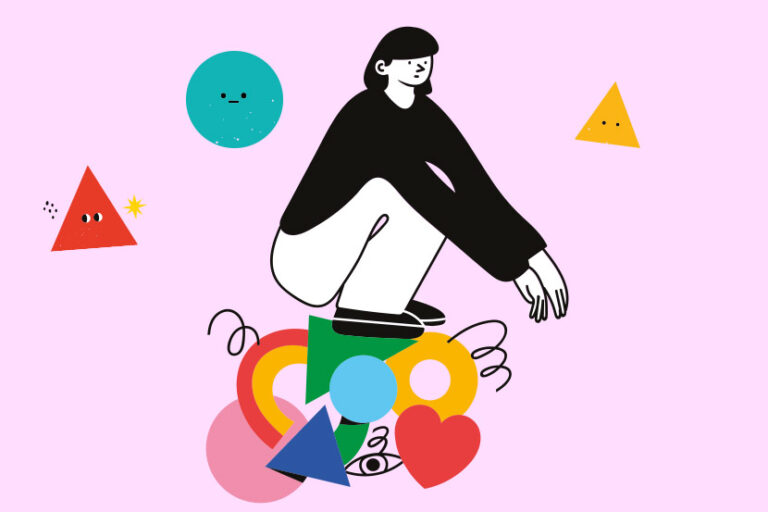
Instead of seeking validation from others, try looking inwards to find a sense of self-worth
Recently my friend Jenny called to discuss a business idea she was thinking about launching. As she described it, the concept began to sound strangely familiar. Then, as she explained it more, I realised this wasn’t the first time I’d heard about this awesome, well-developed idea – she had run it by me a few months earlier.
Jenny went on to describe the productivity coach she was working with, the business mentoring group she was in, and the many website design options she was sending to her family and friends to review. She had even gone the extra mile and hired a copywriter to help her create the marketing materials. Yet she ended the conversation by declaring with a heavy sigh that she wasn’t sure if she was entirely ready to take the next step towards launching this exciting venture.
Nod of approval
So, what was going on? Jenny is a smart, qualified, and highly capable person, but no matter how much her coach prepared her or how many people validated her idea, she couldn’t outsource what she needed most to move forward – her own self-belief. While confidence is described as feeling sure of yourself and your abilities, some high achievers have a different understanding of what it means. They believe it will come once they get another qualification or reach their next goal. Many will wait to get the nod of approval from someone they regard as superior or more experienced before they feel good enough. In many ways, desiring external validation is normal as it gives a person a boost, but it cannot replace their belief in themselves.
This poses a big question: why are we socially conditioned to place more value on external validation than our own approval? The answer lies in evolution. According to professor of organisational behaviour Nigel Nicholson: ‘Homo sapiens emerged some 200,000 years ago, yet according to evolutionary psychology, people today still seek those traits that made survival possible then: for instance, an instinct to fight furiously when threatened and a drive to trade information and share secrets.’
‘One of our more enduring social fallacies is the idea that what others think of us actually matters’ – Michael J Formica
In a similar way, the need to be part of a group was necessary for our clan-living and hunter-gatherer ancestors. And while the world has changed since then, that instinct to fit in is hardwired. What was once necessary for survival has evolved to a cultural normality. ‘One of our more enduring social fallacies is the idea that what others think of us actually matters,’ says counsellor and life coach Michael J Formica.
‘While this notion clearly has primal evolutionary roots, its shift from survival instinct to social imperative has become one of our greatest obstacles to self-acceptance.’
Gaining confidence is not a matter of eliminating our desire for external validation, it’s about making a conscious effort to start accepting who we are, so we feel safe to be ourselves. According to psychotherapist and life coach Sherry Gaba: ‘Validation is part of being interdependent and relying on the feedback and encouragement of others around us. Even very independent people still need this in some aspects of their lives. However, they’re also able to accept their own self-validation if they don’t get it from someone else.’
Remember the confidence you’re seeking is inside you and it’s growing stronger every moment you place your focus on it. And as American poet EE Cummings said: ‘It takes courage to grow up and become who you really are.’

Find your inner power: 10 ways to cultivate self-confidence
1. Get to know yourself
Go on a self-discovery journey. Learn what lights you up, what depletes you, what your natural strengths and weaknesses are, and why you do the things you do. There are many free personal growth resources online that can help you see who you are, rather than who others think you should be.Personality tests can be a great place to start. Use them to explore what resonates and what feels true. It’s not about labelling yourself, it’s about gaining awareness and giving yourself permission to move through the world in that way of being.
2. Validate yourself
Get in the habit of doing this. It can be as simple as getting excited about an idea you have or telling yourself you look great.
3. Be intentional about where you place your focus
Instead of checking social media, responding to emails, or consuming the news when you wake up, start your day by doing something that focuses on your inner world. A guided meditation is one way to go inwards and create more calmness in your mind. You can also try reframing your external questions to internal ones. For example: What do you think I should do? turns to What do I think I should do? or What do they think of me? to What do I think of me?
4. Know that being confident isn’t about being right or perfect
Try to be compassionate towards yourself when you’re neither of those things. Your confidence is not dependent on a specific result or outcome and it’s not about being in control. It’s a deep-rooted knowledge that you are always enough, even when you make a mistake or you don’t feel your best.
5. Learn to refuse
Doing this for something that isn’t right for you is one of the most confident things you can do. When you say no to something that makes you feel small, doesn’t honour your values, or doesn’t work for where you are in your life right now, you’re saying that you value yourself and your time.
6. Trust yourself
The next time you’re thinking about changing your answer to please someone or watering down your message to appeal to more people, take a moment and remember you’re on your own path. It might look different to your friends’ or the one your parents chose but that is perfectly normal. Keep following your curiosity and trust what’s unfolding in front of you.
7. Focus on something that you really desire
Maybe it’s a specific lifestyle, a travel opportunity, or a successful career. Try to think of something that excites you, but also scares you a bit. This vision will require you to expand into a bigger, more self-assured version of yourself and you will need courage to get there. Start taking small steps beyond your comfort zone and watch your confidence grow as you show yourself how highly capable you are.
8. Remember that the more you believe in yourself, the more others will too
As your confidence increases, you might notice others look to you for answers and offer you a new level of support. It’s also possible you will feel more at ease with people you were once nervous around. Compliments and encouragement from others are great plus points when you already feel good about who you are.
9. Don’t underestimate your capabilities
The mind can run wild thinking of all the unfavourable potential outcomes and the various “what ifs”. The next time this happens, remind yourself that you’re talented, capable, and resourceful. You’ve survived bad days and created many opportunities for yourself. Most importantly, you’re capable of experiencing negative emotions and allowing them to pass, which is part of the human experience.
10. And finally, be quietly confident
You might think the most confident person in a room is the loudest, most charismatic individual with lots of people around them but that’s rarely the case. It’s often the one who has a calm sense of peace and doesn’t need to prove who they are.
Words: Kristy Vail
Photography: Unsplash


















